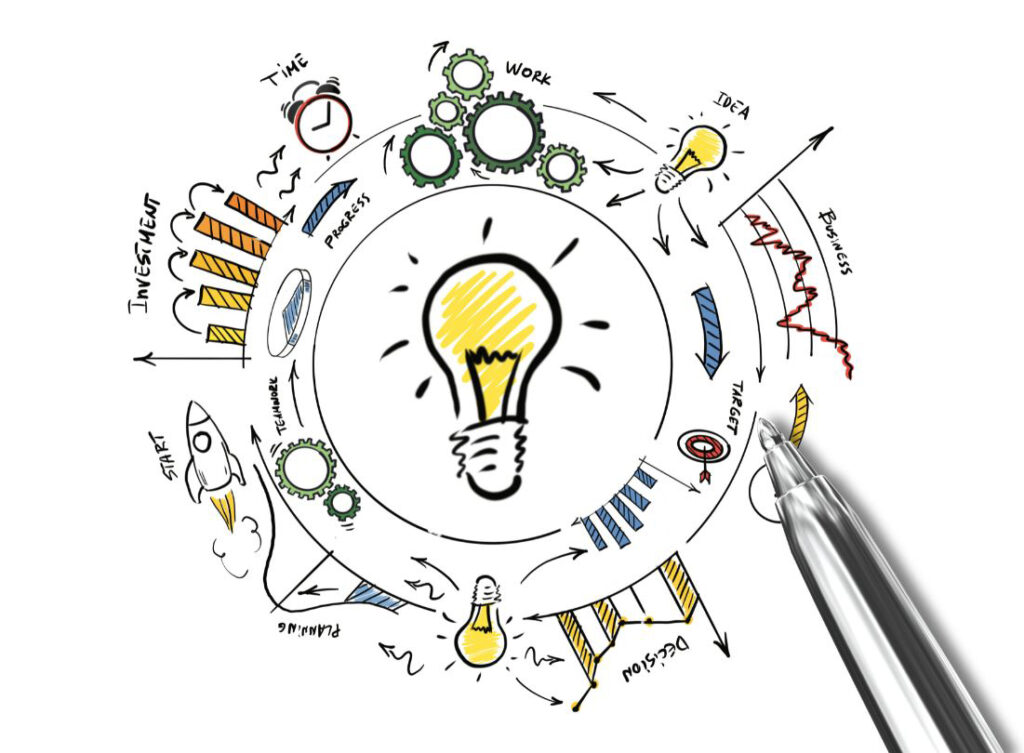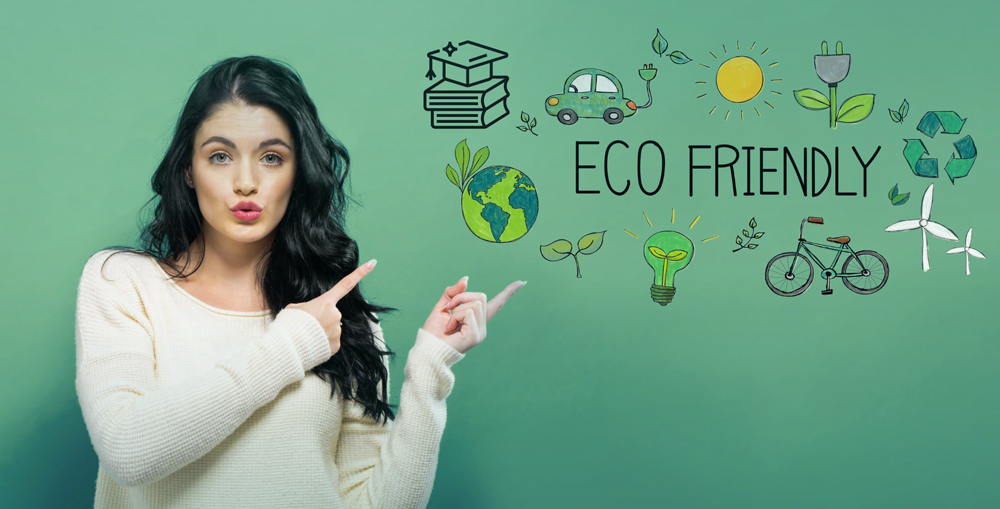As defined by the United Nations Industrial Development Organization (UNIDO), green skills are the knowledge, abilities, values and attitudes needed to live in, develop and support a sustainable and resource-efficient society (Arthur, 2021).
Main recommendations of EC directed to HEIs in area of green skills (according to green-comp.eu) are:
- Develop curricula and programs that include and mainstream green skills.
- Facilitate training opportunities for staff (academic, administrative and others) about implementing green principles and practices.
The main motivation for implementing the project, concerning the integration of green skills and ecological solutions into humanities and social sciences curricula and increasing the awareness of students and staff about the importance of using pro-ecological solutions in everyday life, is the urgent need to face environmental challenges and contribute to a sustainable future.
Climate change, resource depletion and environmental degradation are pressing issues requiring immediate attention and proactive solutions. Universities, as centers of education and innovation, play a key role in shaping the thinking and skills of future generations. They can do this by integrating environmental education into formal curricula at all levels, and developing cros-sectoral curricula covering environmental topics, conservation, climate change, and sustainability.
Nowadays, social awareness of the need to introduce pro-ecological solutions in various areas of life is increasing. Green transformation, industry 5.0, renewable energy – all this is entering more and more areas of our everyday life. New professions are created, companies undergo modernization, new technologies and solutions are introduced, and activities are carried out to increase society’s awareness and pro-ecological habits.
It is most obvious that green professions and skills are implemented in technical fields, after completing which graduates work in eco-related sectors. Unfortunately, it can be noticed that students of other fields are somewhat omitted in this process of educating staff responsible for counteracting and mitigating the effects of climate change.
Studies in management, journalism, sociology, administration or international relations lack elements of pro-ecological education. Yet graduates of these fields can also contribute to counteracting climate change in their future professional work.
Integrating green skills into humanities and social sciences curricula is a proactive response to the urgent need for a skilled workforce capable of developing and implementing solutions to address the environmental crisis, not just in technical roles.
By integrating environmental literacy into university humanities and social sciences curricula, our goal is to equip students with the knowledge and skills necessary to make a significant contribution to environmental sustainability in future careers not directly related to technical professions.

Project aims
Main aim of the project is development of solutions and materials that will actually contribute to increasing the social and ecological awareness and responsibility of students and university employees
Detailed objectives
- Integrate green skills and sustainability concepts into the existing study programs across multiple disciplines.
- Equip faculty members with the knowledge and tools to effectively teach green skills.
- Foster collaboration between universities, industry partners, and environmental organizations to enhance the relevance of green skills.
- Encourage research initiatives focused on green skills, sustainability, and environmental innovation.
- Increase students’ awareness of environmental issues and the importance of green skills.
- Embed green skills and sustainability considerations into institutional policies and governance structures
Project objectives directly contributes to the environmental priority by ensuring that students across various disciplines acquire knowledge and skills related to sustainability. Integrating green skills into study programs prepares future professionals to address environmental challenges and contribute to climate change mitigation and adaptation efforts. By providing faculty members with the necessary knowledge and tools to teach green skills, this objective supports the development of a knowledgeable workforce capable of addressing environmental issues. Educated faculty members can guide students in acquiring the skills needed for careers focused on environmental sustainability and climate action.
Collaboration between universities, industry partners, and environmental organizations strengthens the connection between academia and real-world sustainability challenges. This objective promotes the alignment of educational efforts with the needs of industries working towards environmental sustainability and climate change solutions.
Research initiatives focused on green skills and sustainability contribute valuable insights to environmental innovation. Addressing climate change requires continuous innovation, and research in these areas helps identify new solutions, technologies, and practices to mitigate environmental impact. Raising students’ awareness of environmental issues is a critical step in building a generation that understands the urgency of addressing climate change. This objective helps create a mindset of environmental responsibility and highlights the importance of acquiring green skills for a sustainable future. Embedding green skills and sustainability into institutional policies and governance structures demonstrates a commitment to addressing environmental challenges at an organizational level. This objective ensures that universities prioritize sustainability in decision-making processes, contributing to broader efforts to combat climate change.
Project target group
Main target group of planned project activities are undergraduate and postgraduate students across various disciplines of social sciences and humanities – in first line those who will take part in pilot testing of subjects with green skills incorporated into their structure.
In wider perspective other students of universities which will incorporate green skills to their study programs according to instructions prepared within the project. In longer perspective these will be also all other students of universities whose authorities or teachers will put in practice ecological solutions proposed in the brochure dedicated to them. These will be also students who will incorporate into their daily life ecological solutions suggested in brochure dedicated to students.
Characteristics of this group: In first place – from new, upgraded curricula will benefit students from social sciences and humanities – firstly offered by partners in wider perspective at other universities. However each partner will decide which students would that be (as each partner will select into which subjects green skills will be incorporated, on the basis of prognoses level of usefulness of green skills within a given subject and the chances of effective implementation of these skills).
Academic backgrounds, varying levels of prior knowledge on sustainability, and a shared interest in acquiring skills relevant to environmental responsibility – this will not be important during selection of subjects to be conducted. Brochure for teachers and brochure for students will be independent on field of study and will have impact on all students who will become familiar with them or whose academics will become familiar with them. Second target group will include teaching staff, professors, and academic professionals from different departments. These will be experienced educators with diverse expertise, varying familiarity with sustainability concepts, and a commitment to enhancing the relevance of their knowledge.

Project results
Main results planned within the project are:
- guidelines for HEI staff about incorporating green skills into already existing study programs
- brochure for students about incorporation of ecological solutions in everyday life
- brochure for HEI staff about organization of academic functioning with incorporation of ecological solutions
- preparation and piloting 15 subjects enriched with green skills
Except for tangible results, we also plan that project will contribute to:
- Integration of green skills into existing study programs across social sciences and humanities, which will provide students with practical skills and knowledge aligned with current and future labor market demands, making them more competitive in sustainability-focused industries
- Enhancing of students’ hands-on experience and proficiency in applying ecological solutions will make them more workplace-ready
- Equipping students with actionable steps to integrate sustainable practices into their personal and professional lives, aligning with the skills demanded by environmentally conscious employers
- Providing students with tangible examples of how sustainability practices can contribute to career success, inspiring them to integrate similar approaches
- Enhancing students’ understanding of the soft skills valued in the labor market, fostering a well-rounded and eco-conscious professional identity
- Empowering of HEI teachers to effectively convey ecological concepts, fostering a culture of sustainability within their classrooms
- Providing teachers with practical tools to enhance their teaching methods and engage students in meaningful discussions about ecological awareness
- Encouraging collaboration between teachers from different disciplines to share best practices and innovative teaching methods, what will promote a cross-disciplinary approach to ecological education, enriching the learning experience for students
- and teachers alike
- Equipping teachers with practical tools to enhance their teaching methods and infuse sustainability concepts into the social science curriculum
- Encouraging HEI teachers to explore collaborative projects and teaching method.
